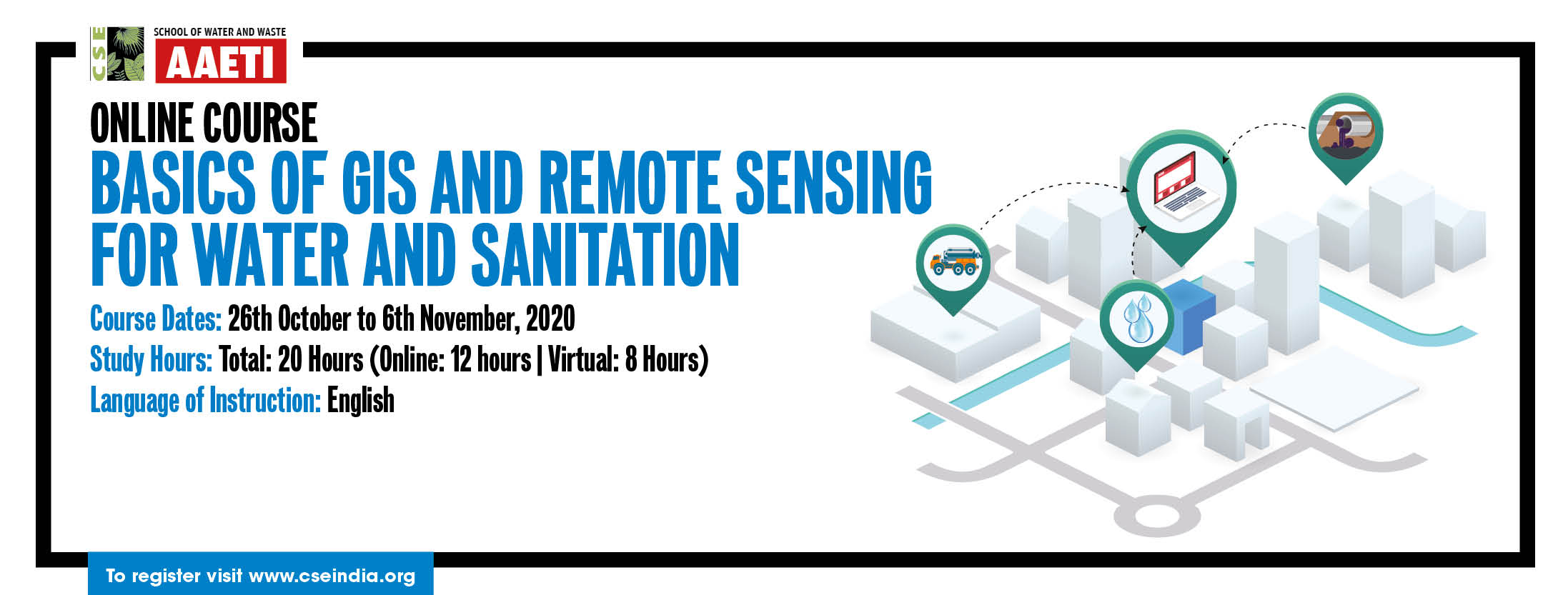
About the Course
The use of Geographic Information System (GIS) and Remote Sensing (RS) is ubiquitous in our lives, where we use it for making better decisions. As cities witness unrelenting urbanisation and grow with each passing decade, the complexity of urban issues increases, particularly related to the urban water cycle and other dimensions of sustainable development.
In order to address these challenges, we need cost-effective solutions, rapid analysis and inter-linking of multi-disciplinary data and information. These spatial analysis tools allow such multi-disciplinary approaches to be applied, using a range of data sources and in response to such complex problems.
With increased focus on water conservation and management in cities, practitioners need to address water issues in a comprehensive manner, and provide rapid, sustainable solutions. GIS and RS techniques will allow managers and regulators to move efficiently from traditional planning and design techniques to smart, cost effective and sustainable solutions.
Course Aim and Objectives
The aim of the course is to sensitize various stakeholders/practitioners to the basic tools and techniques for mapping-analysis for citywide water and sanitation management.
The course objectives are:
- To gain knowledge of GIS and RS, and its role in urban water and sanitation management
- To use various data portals: USGS Earth Explorer, Bhuvan, OpenStreetMap, Toposheets, etc.
- To use open source GIS packages, prepare maps and perform basic analysis for water and sanitation management
- To develop a community of practice who would be interested to upgrade their skills through advance training on tools for mapping and analysis for Water-sensitive cities
- Course Director: Suresh Kumar Rohilla
- Course Coordinator: Shivali Jainer